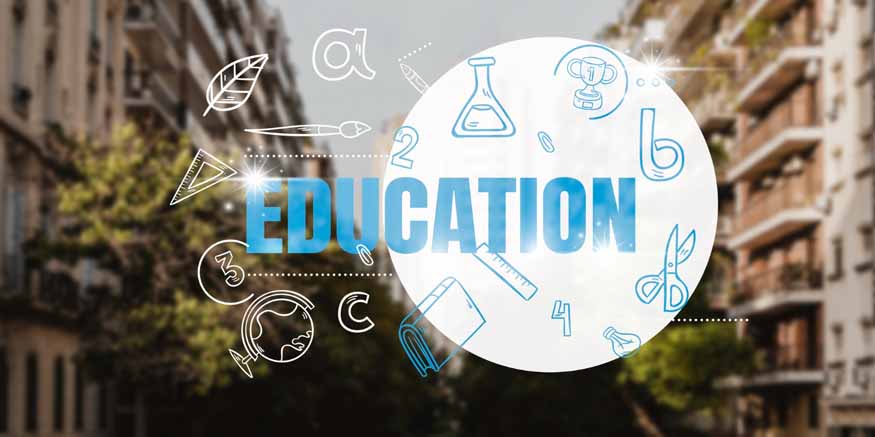Exam preparation can be a daunting task, but with the right tools and strategies, students can maximise their chances of success. One of the most effective tools in a student’s arsenal is the use of sample papers. Sample papers, including board exam sample papers, provide a valuable resource for understanding the format, style, and content of real exams. This article offers practical tips on how to use these resources effectively to enhance exam preparation.
What Is A Sample Paper?
“What exactly is a sample paper? How does it assist in preparing for exams? To what extent is it useful for preparing for specific subjects? These are typical inquiries that students and parents often ponder before exams. Sample papers are indispensable study aids that significantly aid students in their exam preparations, enhancing their overall understanding of the examination process. Employing sample papers not only guides students in the art of exam writing but also equips them with strategies to tackle various types of questions effectively.”
Understand the Exam Format
Before diving into sample papers, it’s essential to understand the specific format of the exam you are preparing for. Examine the structure, the types of questions asked, and the marking scheme. This foundational knowledge will help you make the most out of each exam paper sample you practise with.
1. Start Early
Begin working with sample papers well before the exam date. This allows ample time to familiarise yourself with various question types and to identify areas where you may need additional study or practice.
2. Use a Variety of Sources
Don’t rely on sample papers from just one source. Different publishers and educational institutions may present information in varied ways. Using a range of sources for your board exam sample papers can provide a more comprehensive understanding of potential exam content.
3. Simulate Exam Conditions
When practising with sample papers, simulate real exam conditions. This includes timing yourself, completing the paper in one sitting, and avoiding distractions. This practice helps build stamina and time management skills crucial for the actual exam.
4. Focus on Weak Areas
Use sample papers to identify areas where you struggle. Spend additional time studying these topics, and then return to sample papers to assess your improvement. This targeted approach ensures efficient use of your study time.
5. Review Answer Explanations
Simply completing sample papers is not enough. Review the answers and explanations thoroughly. Understanding why an answer is correct or incorrect is crucial for learning and avoiding similar mistakes in the future.
6. Discuss with Peers or Tutors
Discussing tricky questions or concepts you encountered in sample papers with peers or tutors can provide new insights and perspectives. Group study sessions can be particularly beneficial for this.
7. Track Your Progress
Keep track of your scores on each sample paper. This will help you gauge your progress over time and identify any stagnant areas that might need more attention.
8. Incorporate Past Papers
Where possible, use past exam papers in addition to sample papers. Past papers are actual exams that were given in previous years and can be a goldmine for understanding the exam style and level of difficulty.
9. Stay Updated
Ensure that the sample papers you are using are up-to-date. Exam formats and syllabi can change, and using outdated materials could lead to studying irrelevant or incorrect information.
Also Read: How to Prepare for CBSE Board Exams
Importance of Using Free Sample Papers for Exam Preparation
Here’s why incorporating free sample papers into your study routine is so crucial:
- Familiarisation with Exam Pattern and Format: Free sample papers provide students with a clear understanding of the exam format, including the types of questions, the marking scheme, and the overall structure of the paper. This familiarity reduces surprises on the day of the exam, allowing students to approach it with confidence.
- Effective Revision Tool: Sample papers serve as an excellent revision tool. They cover a broad spectrum of the syllabus, ensuring that students revise each topic comprehensively. This comprehensive coverage ensures a thorough understanding of the subject matter.
- Time Management Practice: Regular practice with sample papers helps students develop effective time management skills. By timing themselves while attempting these papers, they can learn to allocate appropriate amounts of time to different sections or types of questions.
- Identification of Weak Areas: Working through sample papers allows students to identify their weak areas in the syllabus. This identification is crucial for focused revision and for seeking additional help in those specific areas.
- Improvement in Answering Techniques: Sample papers give students a platform to improve their answering techniques, especially for subjective questions where presentation and clarity are key. It helps in refining the way students structure and articulate their answers.
- Exposure to a Variety of Questions: Free sample papers often include a wide range of questions, some of which might not have been covered in standard textbooks or classroom teaching. This exposure broadens the student’s understanding and prepares them for any surprises in the actual exam.
- Boosts Confidence: Regular practice with sample papers boosts confidence. Familiarity with the exam format and types of questions, coupled with improved time management and answering skills, significantly reduces exam stress.
- Cost-Effective Preparation: Being free, these sample papers provide an accessible and cost-effective way for students from all backgrounds to access quality preparation materials. This democratises access to education resources.
- Feedback for Improvement: When used in conjunction with teachers or peer groups, sample papers can provide valuable feedback. Students can have their answers evaluated to gain insights into areas of improvement.
- Simulates Real Exam Environment: Practising under conditions that mimic the actual exam environment can help students adapt to the pressure and constraints of the exam, making the real exam experience less daunting.
Also Read: Amazing Study Tips for Final Exams
By understanding the format, starting early, using a variety of resources, simulating exam conditions, focusing on weak areas, reviewing answer explanations, discussing with others, tracking progress, incorporating past papers, and staying updated, students can maximise the effectiveness of their exam preparation using sample papers.
EuroSchool expertly equips students for exams with comprehensive study materials, personalised teaching methods, and regular assessments for optimal learning.









